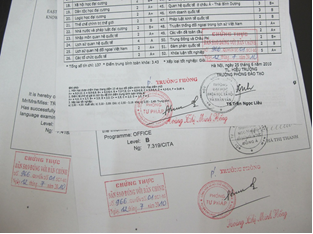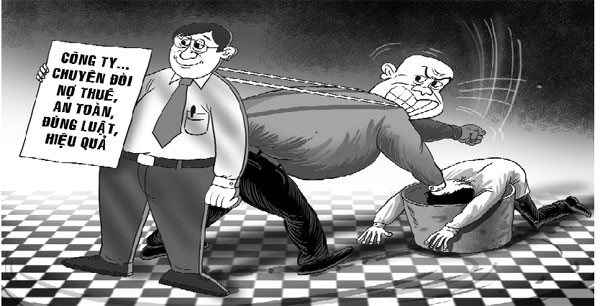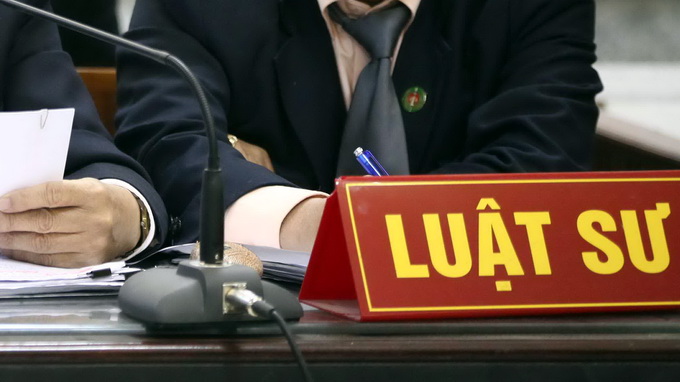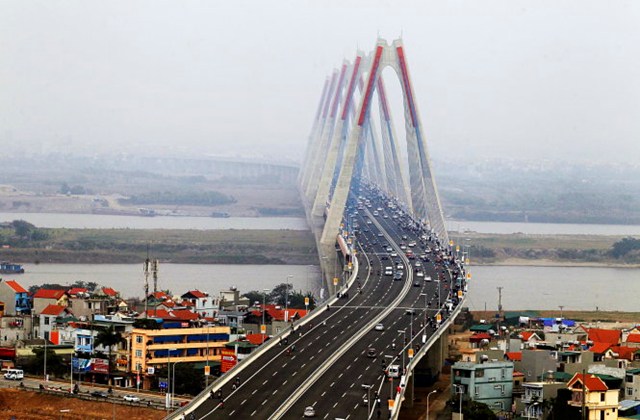On June 16, 2014, at the 7th session, the 13th National Assembly passed the Law on Entry, Exit, Transit, and Residence of Foreigners (hereinafter abbreviated as: NNN) in Vietnam, No. 47/2014/QH13. On June 23, 2014, the President signed Order No. 04/2014/L-CTN to promulgate the Law on Entry, Exit, Transit, and Residence of NNN in Vietnam. The law takes effect on January 1, 2015.

The Necessity to Enact the Law on Entry, Exit, Transit, and Residence of Foreigners in Vietnam to Replace the Ordinance on Entry, Exit, and Residence of Foreigners in Vietnam
The Ordinance on Entry, Exit, and Residence of Foreigners in Vietnam, No. 24/1999/PL-UBTVQH10, was passed by the Standing Committee of the Xth National Assembly on April 28, 2000, and came into effect on August 1, 2000. It has significantly contributed to the development of the economy, diplomatic work, international cooperation, ensuring national security, and creating favorable conditions to attract foreigners to Vietnam for investment, tourism, business, etc. To implement the Ordinance on Entry, Exit, and Residence of Foreigners in Vietnam, competent authorities have issued numerous legal documents to provide guidelines and establish a legal basis for the management of foreigners entering, exiting, and residing in Vietnam. However, practical management has revealed that the Ordinance still has some inadequacies, inconsistencies, and does not align with current realities and other laws, specifically:
- The Ordinance allows foreigners to change their entry purposes after entry if needed. Recently, many foreigners have entered Vietnam under the guise of tourism and then applied for changes to other purposes, particularly staying for work. Many laborers work on foreign-invested projects, causing significant management difficulties.- The Ordinance stipulates that Vietnamese visas are valid for no more than 12 months, while the Investment Law of 2005 stipulates that visas issued for foreign investors can be valid for up to 5 years; visa symbols have not caught up with reality.- Regarding temporary residence declarations for foreigners, the law requires foreigners to declare temporary residence at lodging establishments but does not specify the responsibilities of these establishments for transferring the temporary residence information of foreigners to the immigration management agency. As a result, functional agencies have not promptly captured the full temporary residence information of foreigners.- The Ordinance does not clearly specify the assignments of responsibilities between state management bodies and agencies participating in state management activities regarding entry, exit, and residence of foreigners; it does not define the responsibilities of lodging establishments and the responsibilities of agencies, organizations, and individuals inviting and guaranteeing foreigners to enter Vietnam, leading to instances where foreigners are allowed entry without proper management. When complex issues arise, such as foreigners violating the law, accidents, or deaths, there is a shirking of responsibility.- Concerning permanent residence, currently, a large number of foreigners have been residing in Vietnam since before 2000 but do not have citizenship proof; the National Assembly and the Government of Vietnam are directing their naturalization into Vietnamese citizenship. Those who do not meet the criteria for Vietnamese nationality are to be granted permanent residence for management. However, the Ordinance does not stipulate the handling of permanent residence for those eligible.- The Ordinance does not specify the authority for unilateral visa exemption, yet the Prime Minister of the Government of Vietnam has decided to unilaterally waive visas for citizens of seven countries; it also does not stipulate the re-entry conditions for those entering under exemptions, leading to foreigners exploiting the exemptions to enter Vietnam…
For these reasons, the enactment of the Law on Entry, Exit, Transit, and Residence of Foreigners in Vietnam to replace the Ordinance is a crucial and objective requirement to perfect the legal framework, facilitate foreigners' entry, exit, and residence in Vietnam, enhance state management, and contribute to national security and social order in the new situation.
New Points of Law No. 47/2014/QH13 on Entry, Exit, Transit, and Residence of Foreigners in Vietnam
Law No. 47/2014/QH13 on Entry, Exit, Transit, and Residence of Foreigners in Vietnam consists of 09 chapters, 55 articles with a clear structure, facilitating the study and application by relevant agencies, organizations, and individuals; ensuring conformity with the 1992 Constitution and synchrony with related laws on foreigners' entry, exit, and residence in Vietnam. Besides inheriting reasonable regulations of the Ordinance on Entry, Exit, and Residence of Foreigners in Vietnam proven by practice, the Law introduces important new points:
- First new point, the Law specifies procedures related to entry, exit, transit, and residence of foreigners in Vietnam; therefore, when the Law takes effect, competent state bodies can immediately apply it without waiting for guiding documents, specifically:
+ Procedures to invite and guarantee foreigners into Vietnam (Article 15 & Article 16).
+ Regulations on temporary residence declarations (Article 33).
- Second new point, the Law stipulates that foreigners holding multiple passports can only use one passport for entry, exit, transit, and residence in Vietnam (Clause 4, Article 4). This principle aims to avoid complexities in foreign, civil, and criminal relations, and ensures accurate statistics.
- Third new point, the Law reforms visa regulations, specifically:
+ Entry visas cannot be converted to other purposes (Clause 1, Article 7).
+ 20 types of visas are stipulated (Article 8).
+ Foreigners entering for investment can be granted visas with a maximum validity of 5 years (Clauses 5 & 6, Article 9), in line with the Investment Law.
+ Foreigners entering for work must have a work permit to be issued visas (Article 10).
+ Specifically regulates unilateral visa exemptions for foreigners entering economic border zones and administrative - economic units (Clause 3, Article 12), and unilateral visa exemptions for citizens of certain countries (Article 13).
+ For foreigners entering under unilateral visa exemption, the time of entry into Vietnam must be at least 30 days apart from their last exit.
+ The Law removes the provision allowing competent agencies to issue visas to foreigners without invitations or guarantees in Vietnam (D visas). Heads of competent Vietnamese agencies abroad are only allowed to issue visas not exceeding 30 days for specific cases and are responsible for such issuance (Clauses 3 & 4, Article 17).
- Fourth new point, the Law devotes a chapter to regulations on transit, including:
+ Conditions for transit (Article 23).
+ Transit areas (Article 24).
+ Air and sea transit (Articles 25 & 26).
- Fifth new point, the Law specifies cases for entry denial and exit suspension in line with international norms and related laws:
+ Entry denial for persons expelled from Vietnam within 3 years or forced to exit Vietnam within 6 months (Clauses 4 & 5, Article 21).
+ Exit suspension (Points b & c, Clause 1, Article 28).
+ Competent authorities for entry denial and exit suspension (Article 29).
- Sixth new point, the Law reforms temporary residence declaration:
+ Managers of lodging establishments are responsible for declaring temporary residence for foreigners, eliminating the need for foreigners to directly report to the commune-level police (Clauses 1 & 2, Article 33).
+ Tourist accommodation facilities like hotels must connect to the immigration management agency via network; other accommodations are encouraged to send temporary residence information online (Clause 3, Article 33).
- Seventh new point, the Law specifies cases eligible for temporary residence cards and extends the validity of temporary residence cards to 5 years (Article 38).
- Eighth new point, the Law expands subjects eligible for permanent residence (Clause 2, Article 39) and foreigners who have resided in Vietnam before 2000 without nationality proof (Clause 4, Article 39). It also specifies conditions for permanent residence consideration (Article 40).
- Ninth new point, the Law innovates violation handling: Besides expulsion as stipulated by the Law on Handling of Administrative Violations and the Law on Criminal Execution, the Law prescribes forced exits for foreigners who do not meet expulsion criteria (Article 30).
- Tenth new point, the Law dedicates a chapter to stipulating nine rights and four obligations of foreigners entering, exiting, transiting, and residing in Vietnam; three rights and six responsibilities of inviting and guaranteeing agencies, organizations, and individuals (Articles 44 & 45).
- Eleventh new point, regarding state management, the Law assigns the Ministry of Public Security to lead and cooperate with agencies and localities in managing foreigners' entry, exit, transit, and residence in Vietnam (Clause 1, Article 47).
- Articles 46, 48, 49, 50, 51, and 52 also clarify the responsibilities of state bodies such as the Government of Vietnam, the Ministry of Foreign Affairs, the Ministry of National Defense; ministries and ministerial-level agencies; local people's committees; the Vietnam Fatherland Front Committee, and its member organizations.
Points to Note When Implementing Law No. 47/2014/QH13 on Entry, Exit, Transit, and Residence of Foreigners in Vietnam
Firstly, the Ministry of Public Security issued Circular No. 04/2015/TT-BCA, on January 5, 2015, stipulating 39 forms in the following groups:
- 18 forms for agencies, organizations, and individuals inviting and guaranteeing foreigners; 07 forms for immigration management agencies; 14 forms for foreigners entering, exiting, and residing in Vietnam. The contents and formats of these forms largely inherit the current forms with some adjustments, adding new forms, and changing symbols to align with the Law. The Circular also regulates the printing, use, and management of these forms.
Agencies, organizations, and individuals guaranteeing foreigners are requested to use the forms issued with Circular No. 04/2015/TT-BCA, dated January 5, 2015, of the Ministry of Public Security.
- Previously, confirmations on some forms were made by the commune-level people's committee; now, the head of the commune-level police will verify, sign, and seal (corresponding to each form).
- Agencies, organizations, and individuals can access, print, and use the forms from the online information network of the immigration management agency.
Secondly, regarding invitations and guarantees for special entry cases:
- Foreigners entering for investment: Must have an investment permit (visa symbol DT).
- Foreigners entering for work: Must have a work permit (visa symbol LD).
- Foreigners entering for study: Must have a receiving decision from a school in Vietnam (visa symbol DH).
Thirdly, agencies and businesses with lodging establishments for foreigners must declare temporary residence for them:
- Business establishments for foreign lodging must connect to the network.
- Agencies, organizations guaranteeing foreigners must:
+ Arrange for foreigners to stay at lodging establishments meeting security conditions (licensed by PC64).
+ Coordinate with lodging establishments to declare temporary residence for foreigners.
+ Cooperate with immigration management agencies to handle arising issues when foreigners violate regulations.
Fourthly, agencies and businesses guaranteeing entry or visa issuance, extension for foreigners, must submit legal entity documents as stipulated (Clause 2 - Article 16) of the Law.
Legal entity documents can be submitted to the immigration management agency once.
- When there are changes in legal entity details: heads, addresses, business licenses… agencies, organizations must notify these changes to the immigration management agency where the legal entity documents were submitted.
Source: Official Website of Dak Nong Province Department of Foreign Affairs
 Article table of contents
Article table of contents





.Medium.png)
.Medium.png)
.Medium.png)
.Medium.png)
